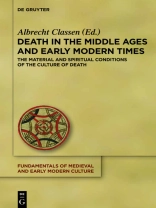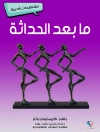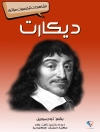Death is not only the final moment of life, it also casts a huge shadow on human society at large. People throughout time have had to cope with death as an existential experience, and this also, of course, in the premodern world. The contributors to the present volume examine the material and spiritual conditions of the culture of death, studying specific buildings and spaces, literary works and art objects, theatrical performances, and medical tracts from the early Middle Ages to the late eighteenth century. Death has always evoked fear, terror, and awe, it has puzzled and troubled people, forcing theologians and philosophers to respond and provide answers for questions that seem to evade real explanations. The more we learn about the culture of death, the more we can comprehend the culture of life. As this volume demonstrates, the approaches to death varied widely, also in the Middle Ages and the early modern age. This volume hence adds a significant number of new facets to the critical examination of this ever-present phenomenon of death, exploring poetic responses to the Black Death, types of execution of a female murderess, death as the springboard for major political changes, and death reflected in morality plays and art.
Over de auteur
Albrecht Classen, The University of Arizona, Tucson, AZ, USA.












